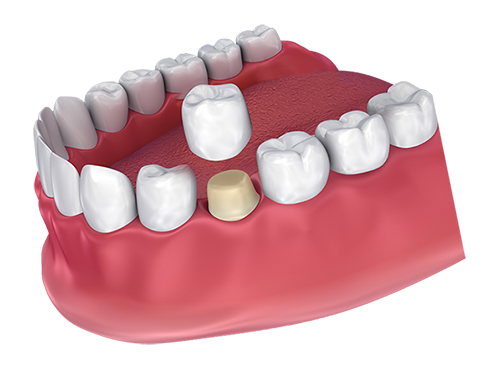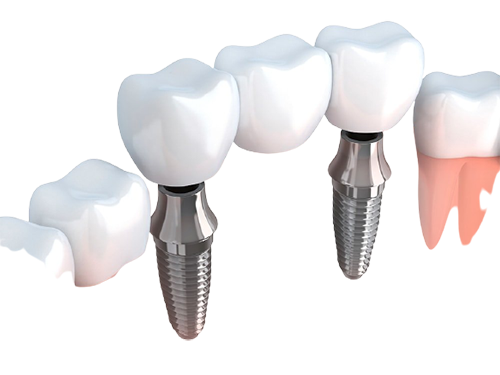Crowns

Dental crown are specially fitted caps used to fully cover teeth which are damaged, cracked, chipped or otherwise beyond repair. They provide protection and support to the damaged tooth, thus increasing its longevity. Dental Crowns also work to improve a tooth’s appearance, shape and alignment. They can be matched to the colour of your existing teeth so that they are not noticeable.
At Srisha Dental Care, we recommend a Dental Crown to:
Restore a broken or fractured tooth
Protect a weak tooth from fracturing
Replace a large filling
Cover a dental implant
Cover a tooth following root canal treatment
Hide a misshapen or discoloured tooth
Attach a bridge
Before a crown can be fitted to your tooth, the tooth must be reduced in size so that the crown will fit properly. We will take an impression of the tooth or teeth, which will be sent to a dental lab so that an exact crown can be created, and then colour-matched to your teeth (if porcelain is being used). This crown is then cemented over your tooth.
Crowns are typically strong and durable solutions and can often last a lifetime. However, a crown can sometimes come loose or fall out. The most important steps you can take to ensure your crown’s longevity are brushing with fluoride toothpaste twice a day and flossing daily. Make sure you visit your dentist regularly for check-ups and cleaning. Try to avoid chewing hard objects or foods.
Dental Bridges
Dental bridges can be used to span the gaps left by missing teeth, and are custom-made to fill the empty space. Remaining teeth surrounding the gap are used as anchors for the bridge. Porcelain or ceramic bridges can also be matched to the colour of your existing teeth so that your dental bridge fits well with the rest of your smile.
Dental bridges are highly durable and can often last a lifetime. However, a bridge can lose its support and become loose or fall out if the teeth holding it in place become damaged or decayed. To ensure your bridge’s longevity, good oral hygiene is a must. Brushing with fluoride toothpaste twice a day and flossing daily will help, as will seeing your dentist regularly for check-ups and cleaning. Chewing hard objects or foods should also be avoided.

